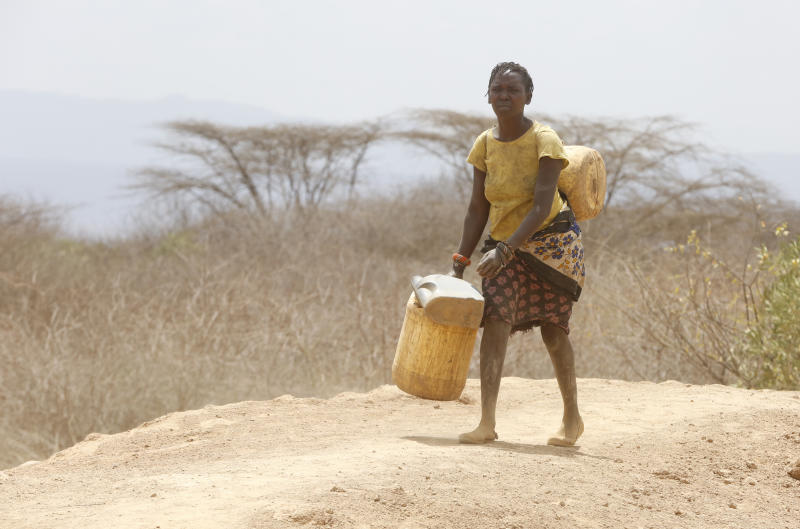A woman carrying jerricans in search of water at Naudo water pan in Silale, Tiaty, Baringo County on March 17, 2022. [Kipsang Joseph, Standard]
×
The Standard e-Paper
Kenya’s Boldest Voice

A woman carrying jerricans in search of water at Naudo water pan in Silale, Tiaty, Baringo County on March 17, 2022. [Kipsang Joseph, Standard]
Farmers have received a major boost after Treasury Cabinet Secretary Ukur Yatani allocated an additional Sh2.7 billion to the fertiliser subsidy programme. This is in addition to Sh3 billion that was allocated in the 2021/2022 financial year.